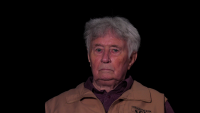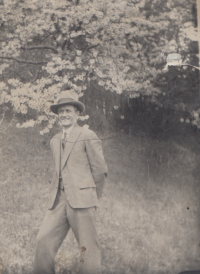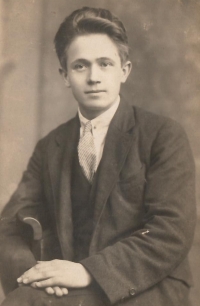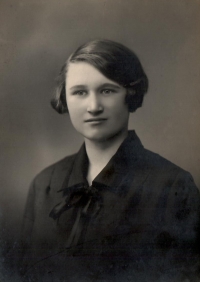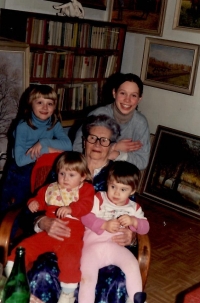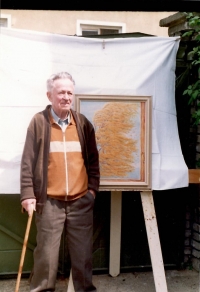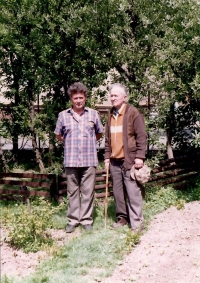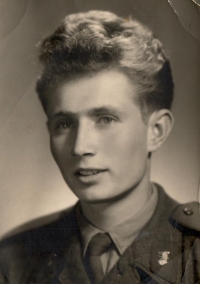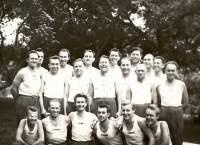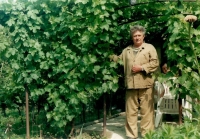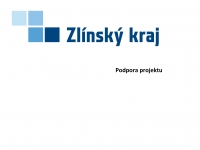I joined the Communist Party on my 16th birthday

Stáhnout obrázek
Alois Vychodil was born on 28 April 1932 in Napajedla near Zlín. Together with his two younger sisters, he grew up in the family of Alois and Marie Vychodils. His father was employed in the Slávia company of the Pařík brothers in Napajedla during the First Republic and made prototypes of wooden moulds for gas masks for the newly opened Fatra as a wood modeller. He was arrested as a communist resistance fighter in 1943. The consequences of his detention in Zlín, Uherské Hradiště, Kounic‘s dormitories in Brno and then his 18-month sentence in the then Breslau, today‘s Wrocław, took a great toll on his health. He returned emaciated, and for many years, he had recurrent nervous tremors. In 1944, Alois Vychodil the Younger witnessed the landing of an American Boeing in a meadow called Amerika outside Napajedla. In his old age, he and Josef Nesvadba together donated a collection of memories and historical sources to the partisans of the Bohuš paratroop group, who operated in the nearby Žlutava from February 1945 until the liberation, which was published in 2015 under the title O lidech statečných (About the Brave People - transl.). After the war, Alois joined the ČKD Napajedla company - Sláviamotor Napajedla (originally Slávia bratří Paříků) as an apprentice, where his father was still working at that time as the head of the apprenticeship and other departments. After a few years as a turner, he became an educator and later head of cadre education. He served his basic military service in Prague at the headquarters of the Border Guard. As a party member (Communist Party of Czechoslovakia), he worked from the mid-1960s as secretary of the National Committee in Napajedla and later as head of the organizational department at the District National Committee in Gottwaldov. In total, he lasted 38 years in municipal politics, 14 of which were as a member of the Napajedla council. Since 2005, he has lived (and in 2020 lived) in Otrokovice.
